MATTERS


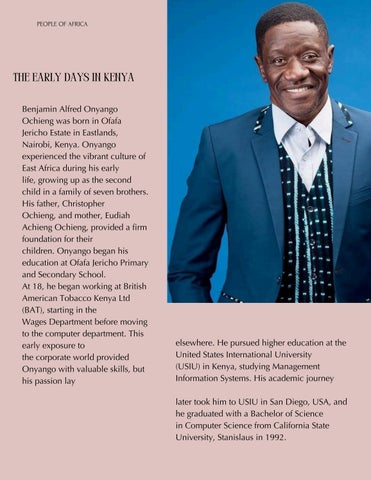


The Complex Legacy of International.
How Maize Flour Unites Africa’s Diverse Cuisine
Care
Homemade Energy Drinks for Natural Vitality
Daughters of AFrica
Women voice imperfection exposed
EURO and COPA America’s flaws overshadow byEURO and COPA America’s flaws overshadow by

Dear Reader,
In an era where the loudest voices shape global narratives instead of the most reasoned ones, we must critique the foundations on which these narratives rest. This issue of People of Africa delves into a topic that demands both reflection and action: the often contradictory and self- serving nature of Western influence on African development Our lead editorial, Has the West Lost Its Moral Compass? The Irony of Global Policymaking. challenges us to confront the uncomfortable reality that while Western nations purport to lead global reform, they are simultaneously grappling with their own profound issues From political theater and judicial dysfunction in the United States to escalating crime and systemic inequalities in the UK, the editorial questions whether Western countries have the moral authority to dictate solutions for Africa. But our exploration does not end there. In this issue, we also celebrate the shining examples of African excellence that inspire and uplift us From post-Olympics achievements to the latest in fashion and culinary innovations, we spotlight the remarkable individuals and movements that make Africa proud.

Through exclusive interviews and features, we bring you closer to the voices and stories that are reshaping perceptions and setting new standards on the global stage.
At People of Africa, our mission is to foster a dialogue that empowers, informs, and inspires. We believe that by inspecting the global dynamics at play and celebrating our own successes, we can better understand the implications for our continent and advocate for more equitable and effective solutions. We invite you to engage with this editorial and the stories within these pages. Feel the pride, share in the achievements, and join us in amplifying Africa’s voice.
As we navigate the complexities of the global stage, let us remember that genuine progress comes from a place of understanding and self-determination. When our voices are louder, our message will be clearer and stronger.
With heartfelt thanks,,
HoneymoonAljabri Chief Editor, People of Africa


From “I think your fake eyelashes are messing up what you are reading” to “I am just curious, just to better understand your ruling, if someone on this committee then talks about somebody’s bleach blond bad built butch body, that would be not engaged in personalities, correct?” this is not a scene from a family squabble, but a late-night oversight committee hearing on the floor of the House of Representatives. Such statements underscore the decline in decorum and substantive debate in American politics. The Biden-Trump presidential debate was a case in point, resembling a spectacle more than a serious exchange of ideas. Trump’s relentless fabrications and Biden’s occasional lapses in memory such as confusing the President of Ukraine with Putin and trailing off mid-thought only , this when he was hosting the NATO summit in Washington D.C. affirmed Julius Kambarage Nyerere’s observation: “The United States is also a one-party state, but with typical American extravagance, they have two of them.” This debate was emblematic of a political system that seems increasingly disconnected from reality, producing more theater than meaningful discourse. click here
“The United States is also a one-party state, but with typical American extravagance, they have two of them.”
-Julius Nyerere
Credit given to Biden for demonstrating a measure of humility by stepping down after internal party pressure, despite his clear cognitive lapses Meanwhile, Trump’s response to an assassination attempt was to rally his base with fiery rhetoric, positioning himself as a martyr. This spectacle not only undermines the integrity of American democracy, but also sets a troubling precedent for leadership in a country that prides itself on the rule of law America’s three branches of power, legislative, executive, and judicial, checked and balance each other. Yet recent years have seen these branches embroiled in contentious and often farcical drama. The Supreme Court’s June 26 decision exemplifies this dysfunction. By ruling that the federal anticorruption statute does not criminalize gratuities payments made to officials as tokens of appreciation, the Court effectively undermined safeguards against state-level corruption. This ruling has farreaching implications, potentially emboldening corrupt practices and eroding public trust African observers do not overlook the irony of this situation.

As the U.S. grapples with its internal issues, including rampant gun violence, as seen in the recent mass shootings in Uvalde, Texas, and Buffalo, New York, it continues to posture as a global moral arbiter. Similarly, the UK’s struggle with rising knife crime, exemplified by the alarming increase in violent incidents in London, highlights a systemic failure to address pressing domestic issues.
In this context, Africa must critically evaluate what it can learn from Western models. Should it adopt America’s approach to gun control, characterized by legislative gridlock and frequent tragic shootings? Or should it follow the UK’s example of knife crime management, marked by increasing violence and public fear? The persistent discrimination faced by people of color in these societies from police brutality in the U S to the Windrush scandal in the UK raises serious questions about the West’s moral authority to prescribe solutions for Africa.
Africa’s diverse cultures and challenges cause homegrown solutions rather than borrowed remedies from troubled Western systems. The continent’s struggle with issues like debt dependency, exemplified by IMF conditional loans and their adverse effects on nations like Egypt and Ghana, underscores the need for self-determination. The IMF’s imposition of austerity measures and structural adjustments has often exacerbated poverty and instability rather than fostering genuine development. Moreover, Africa’s burgeoning regional initiatives, such as the African Continental Free Trade Area (AfCFTA) and the African Development Bank (AfDB), represent a shift towards more autonomous economic strategies. These efforts reflect a growing realization that the continent must chart its own course, leveraging its strengths and resources to address its unique challenges. In conclusion, while Western nations continue to project their values and solutions onto Africa, they remain mired in their own crises It is time for Africa to assert its agency, focusing on strategies that align with its own realities rather than emulating flawed models. The West must first address its internal dysfunctions its struggles with violence, corruption, and systemic inequality before attempting to dictate solutions for others As Africa navigates its path forward, it must prioritize homegrown solutions and resist the temptation to mirror Western failures. The world would benefit from a more introspective West and a more selfreliant Africa, fostering a more fair global dialogue..
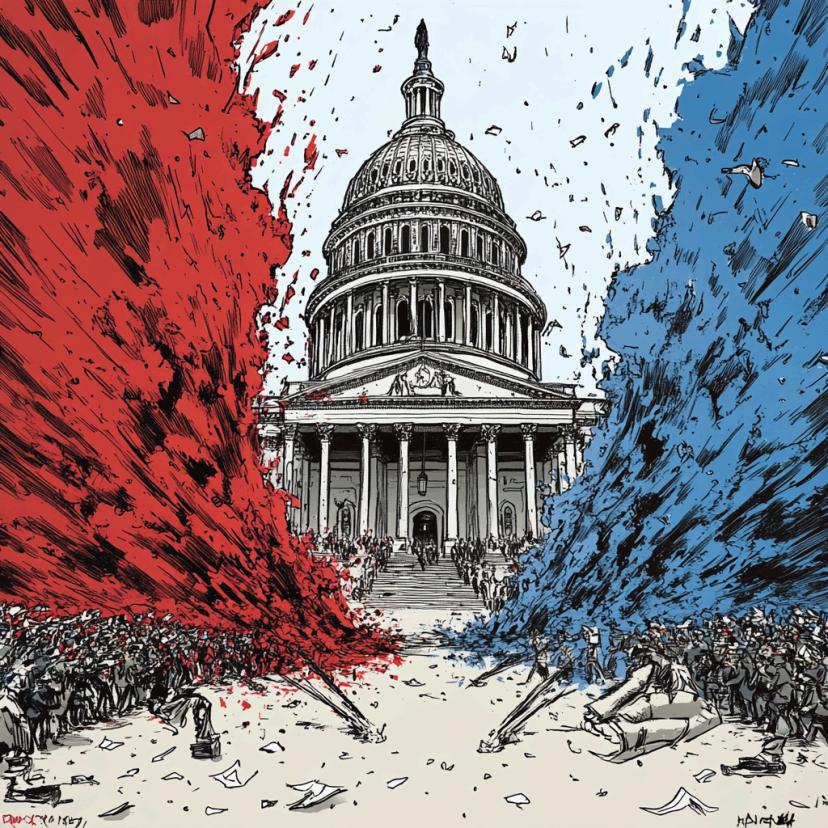
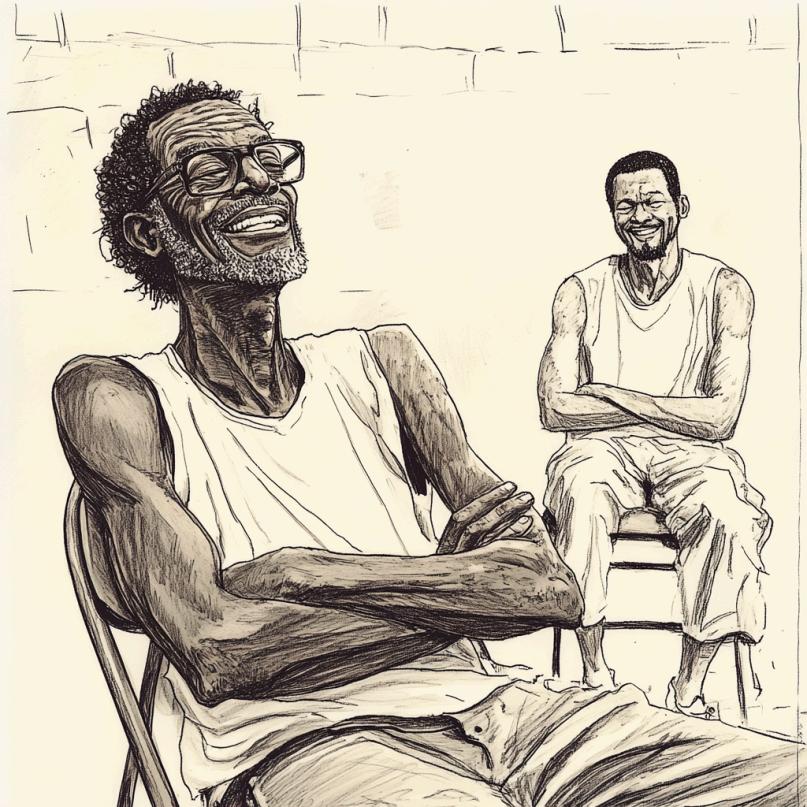
As an African graduate from a HBCU, I have deeply respected and understood the complex history that stretches from the harrowing days of slavery to the ongoing struggles for equality. This education instilled in me the importance of being both respectful and firm in our fight for dignity.
However, I find myself increasingly perplexed by a troubling trend among some BlackAmericans who, knowingly or unknowingly, perpetuate the very stereotypes that were once used by white oppressors to demean and subjugate them. This cycle of disrespect towards Africa and Africans is disheartening and requires urgent reflection. When considering the enduring stereotypes, one must acknowledge Aunt Jemima, who frequently appears in depictions as a maid, a subservient, and nurturing black woman. These stereotypes, perpetuated through media, advertising, and entertainment, have reinforced racist attitudes and contributed to systemic oppression for generations.


The history of slavery and segregation deeply roots the origins of these stereotypes. For instance, minstrel shows inspired the character of the aunt in the late 19th century, which dehumanized black people for entertainment. Similarly, Harriet Beecher Stowe’s novel, Uncle Tom’s Cabin, distorted the Uncle Tom’s stereotype to depict black men as passive and subservient. These harmful images were not merely offensive; they were tools of oppression designed to justify the mistreatment and exploitation of black people. In 2024, one might hope that these stereotypes are relics of a bygone era. Yet, some public figures seem intent on keeping these harmful narratives alive, demonstrating a lack of respect that continues to harm our communities. The difference between Africans and African Americans, or as we prefer, the African diaspora, lies in our respective journeys to this land. Some of us arrived with chains around our necks, others with seat belts, but we all find ourselves in the same basket today
The difference between Africans and African Americans, or as we prefer, the African diaspora, lies in our respective journeys to this land.
WE ARE FAMILY
Take, for instance, the recent xenophobic comments from former NBA star Gilbert Arenas. Afternearly losing to South Sudan in an exhibition game, Arenas disparaged the team with remarks about their supposed lack of proper facilities and shoes. “They got baskets in the back, they shooting on F...ing peach baskets in dirt, no shoes” he sneered. Such comments, rooted in ignorance, only deep divisions. Similarly, Boston Celtics legend Paul Pierce mocked the South Sudanese team, predicting a 40-point loss because of their lack of an indoor court. These instances of disrespect from stars are troubling. Are they a result of sheer stupidity or a lack of knowledge? Meanwhile, comedian Tiffany Haddish, whose father is African, went to Zimbabwe and broadcasted on Instagram Live Africa has grocery stores, an act of condescension that underscores a troubling ignorance. This ignorance is not new. People have been asking Africans demeaning and absurd questions, such as if they have had toilets, for decades. Do you live in houses? Such questions reveal a profound misunderstanding between the continent and its people. Africa is a continent of 55 diverse countries, each with its own rich history, culture, and advancements. From the ancient libraries of Timbuktu to the bustling tech hubs of Lagos and Nairobi, Africa has always been a cradle of civilization and innovation.
What is it about Westerners, particularly Americans, that drives them to these flawed perceptions? It is a legacy of colonialism and systemic racism that continues to distort their views. A media landscape that often focuses on negative stereotypes rather than the continent’s achievements and potential exacerbated this myopia. It’s high time we question and dismantle these stereotypes. As members of the African diaspora, we must strive to uplift and respect one another, recognizing our shared heritage and the diverse paths that have brought us to where we are today. The African diaspora, including African Americans, has a long history of resilience and strength. From the Harlem Renaissance to the Civil Rights Movement, African Americans have consistently fought for justice and equality, drawing on their African roots for inspiration and strength.

Let us challenge these damaging narratives and celebrate the richness of our cultures, histories, and shared humanity. By doing so, we honor our ancestors’s struggles and pave the way for a future of mutual respect and understanding. The time for change is now, and it begins with us acknowledging our interconnectedness and working together to build a more inclusive and respectful world.





We salute you ! Your remarkable performances at the Paris Olympics have made Africa proud. Your dedication, perseverance, and passion for your sports have inspired a continent.
We celebrate your wins, your personal bests, and your courage in the face of adversity. you have shown the world what is means to be African. Strong , proud , and unstoppable
we are grateful for the pride you have brought us and the inspiration you have sparked in generations to come


“I want to serve the community that is underrepresented and underprivileged,” says Dr. Eunice Binyanya, DNP ARNP FNP-C, who dreamed of being a journalist while in high school in Kenya. However, her aspirations shifted when she arrived in America and someone introduced her to the world of healthcare.
“I wanted to be a journalist to speak for the people. When I got to America, I saw the opportunity to serve people by helping them,” she explains. Now a Ph.D. holder in her field, Dr. Binyanya aims to educate people on maintaining their health and reducing hospital visits, particularly among low-income families. When asked if keeping people healthy might affect her business, she smiles and says, “It’s not all about the money. I can earn my living by making people healthy, not sick. A country with healthy people thrives more than one with ailing citizens.” She adds that when we create solutions to problems, financial success will naturally follow.
In her newly established family practice clinic, Dr. Binyanya is working on earning the trust of the community she serves.
“Medical care is personal; people have to trust you to listen and understand you,” she notes. Being a Kenyan woman in Florida, she acknowledges that fitting in isn’t easy. She is learning the lingo and ensuring she gains the trust necessary to serve her community effectively.

Dr. Binyanya grew up in humble beginnings where resources were scarce. Her parents, despite not attending college, worked tirelessly to ensure that she and her siblings received a better education. From a young age, she knew she wanted to make a difference in the world through service. After high school, she had the chance to come to America, often referred to as the land of opportunities. However, she soon realized that these opportunities required hard work. As a Kenyan immigrant and international student, the path seemed daunting. With limited resources, she began her career as a nurse’s aide and gradually built herself up to where she is today. “I believe in embracing opportunities that are beyond repayment and transforming them into our gift to the world.
Dr. Eunice Binyanya, DNP ARNP FNP-C, brings over a decade of experience to her role as a Doctorate Family Nurse Practitioner. Her clinical background includes managing acute illnesses and complex, multisystem disease processes as an internal medicine hospitalist nurse practitioner. Dr. Binyanya’s vision extends beyond traditional healthcare; she founded LeanCare Health and Wellness with a commitment to compassionate, comprehensive care. Her patientcentered approach emphasizes preventative care, health education, and long-term health condition management. LeanCare Health and Wellness As the founder, Dr. Binyanya aims to redefine family practice. LeanCare Health and Wellness is more than a clinic it’s a testament to her belief that healthcare should be accessible, personalized, and compassionate. Under her guidance, the clinic offers a range of services tailored to meet the unique needs of each family member. From wellness exams to chronic disease management, Dr. Binyanya and her team foster a healthier, happier community.

Looking ahead, Dr. Binyanya plans to open more clinics in Florida and establish clinics in Kenya as a way of giving back to the community that shaped her. This initiative is part of her broader vision to make quality healthcare accessible to all, regardless of their location or financial status.

Dr. Eunice Binyanya finds joy in the simple pleasures of life. When she steps away from the clinic, she immerses herself in quality time with her family. Whether it’s cooking together or exploring new restaurants, these moments are precious to her. And when wanderlust calls, Dr. Eunice embarks on adventures around the world, sharing laughter and experiences with friends and loved ones. Her commitment to compassionate care extends beyond the clinic walls, touching both her patients and her personal life. Although her journey was challenging, as it is for many Africans in a new world, she wouldn’t change a thing because what she learned made her who she is today.

Dr. Binyanya, a wife and mother of two boys, enjoys cooking tilapia fish in her spare time her favorite dish. “Fish and chips speak to my soul” she declares with a smile, expressing her love for the fish that originated from Lake Victoria. When asks what Africa means to her, she simply says, “Africa to me means hope.” Thank you, Dr. Binyanya, for sharing your inspiring story with People of Africa magazine. Your journey is a beacon of hope and inspiration for all who dare to dream big.



For years, African soccer has faced unjust marginalization and undermining, with Europe and America often perceived as the pinnacle of footballing excellence. We remember the dismissive remarks of Liverpool’s coach Jurgen Klopp about the “little tournament in Africa,” reflecting a widespread stereotype in Western media that belittles African sports. Yet, in 2024, African football has resoundingly showcased its brilliance, proving that it harbors some of the world’s most remarkable players deserving of global recognition. If a continental team competition were to take place, pitting Africa against Europe, America, and Asia, Africa could undoubtedly emerge victorious. It is becoming increasingly clear that Africa’s players outshine the rest, and we can no longer ignore this.
The 2024 Copa America concluded with Argentina clinching the title, but many issues that cast doubt on the United States’ ability to host the 2026 World Cup marred the tournament. The semifinal between Uruguay and Colombia, followed by the chaotic scenes before the final between Colombia and Argentina, left football fans concerned about the organization and security of major tournaments on American soil. Crowd issues caused a delay of over an hour in the Copa America’s final match, overshadowing Argentina’s victory. Fans breached security gates at Hard Rock Stadium in Miami Gardens, causing chaos and endangering safety. Videos circulated on social media showed fans in Colombian colors jumping over railings and running past police officers and stadium attendants. The sweltering heat only exacerbated the situation, with several people receiving medical treatment and water. Despite these disruptions, officers restored order, but the incident raised serious concerns about the readiness of the U.S. for the World Cup.


European football, too, was not free from controversy. UEFA’s decision to appoint Felix Zwayer, a referee with a history of match-fixing, for England’s Euro 2024 semifinal against the Netherlands drew sharp criticism. Zwayer, banned for six months in 2005 for accepting a bribe, had his integrity questioned by England’s Jude Bellingham after a contentious Bundesliga match in 2021. Despite the backlash, UEFA stood by their appointment, with players like Luke Shaw urging focus on the game rather than the officiating. Euro 2024 faced significant issues with pitch conditions. Despite UEFA’s efforts, several venues had substandard playing surfaces, prompting complaints from players and coaches. In Frankfurt, Dusseldorf, Hamburg, and other cities, organizers repeatedly fixed pitches, often just days before matches, yet still failed to meet the desired standards. Such logistical shortcomings highlighted the challenges UEFA faced in ensuring optimal conditions for the tournament.
In stark contrast, the 2024 Africa Cup of Nations (AFCON) was a resounding success, lauded as the greatest AFCON of the 21st century. From unexpected eliminations to stunning goals, the tournament delivered excitement and drama at every turn. Ivory Coast’s victory over Nigeria in the final marked the culmination of a tournament filled with shocks and surprises, earning it the moniker “The AFCON of shocks.”
During the group stages, underdogs such as Equatorial Guinea and Cape Verde topped their groups, defeating more established teams along the way, while heavyweights like Ghana, Algeria, Tunisia, and Zambia faced unceremonious eliminations. The knockout stages continued this trend, with defending champions Egypt and Senegal bowing out early, and World Cup semifinalists Morocco falling to South Africa. Stoppage time drama added to the spectacle, with many late goals changing the course of matches. The host nation, Ivory Coast, provided a captivating storyline, with their journey to the title on home soil becoming one of the most memorable in AFCON history. The tournament’s success was further underscored by the high level of competition, the vibrant cultural celebrations, and the overall atmosphere that captured the essence of African football.

The cha perp whi infe that only Euro The prod deb perf exc Afri Moh con glob can rich from com imm pote bea

As the dust settles on AFCON 2024, African football deserves greater recognition and representation on the global stage. The continent’ talent pool is vast, and its players have consistently shown their ability to compete at the highest levels. FIFA must heed the call for more World Cup spots for African nations, acknowledging the continent’s profound footballing prowess and ensuring that the world witnesses the distinctive and unpredictable brand of African football. In conclusion, while the flaws of Copa America and Euro 2024 exposed organizational shortcomings and controversies, AFCON 2024 shone brightly, showcasing the brilliance and potential of African football. As we look towards future tournaments, it is imperative that Africa’ contributions to the beauti are celebrated and given th platform they so richly des era of African football bein sidelined and belittled mus making way for an era of recognition, respect, and c of its undeniable excellenc
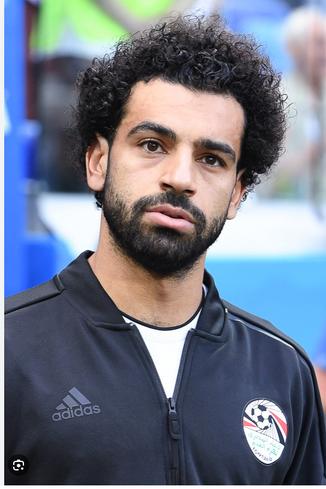




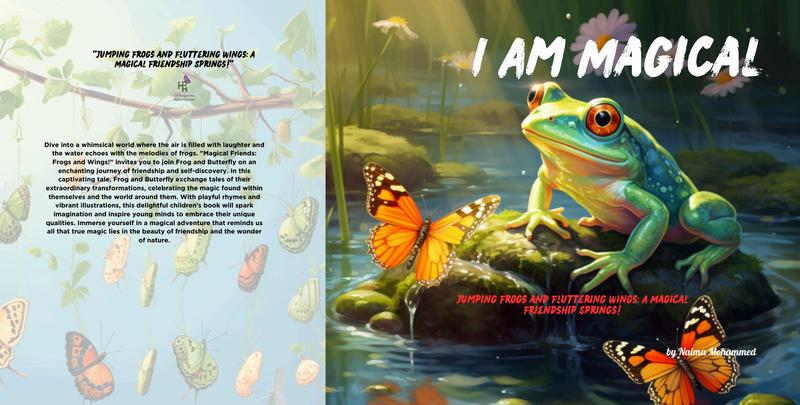
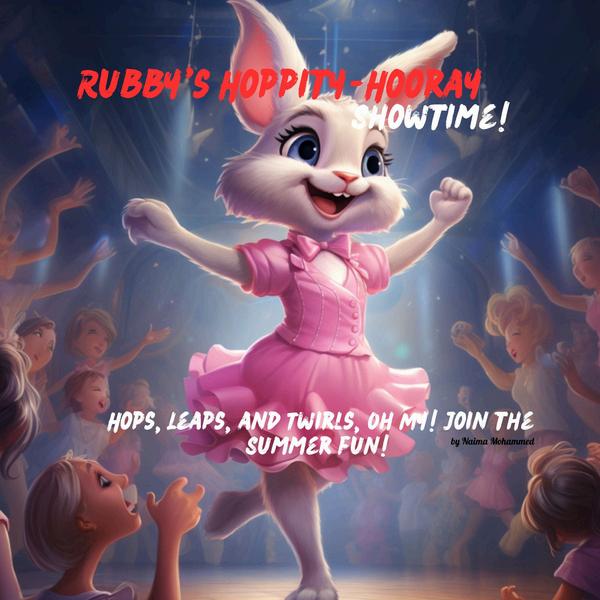
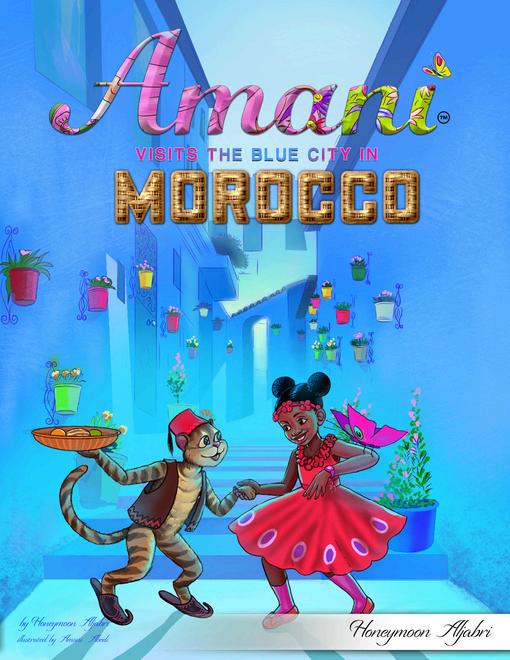


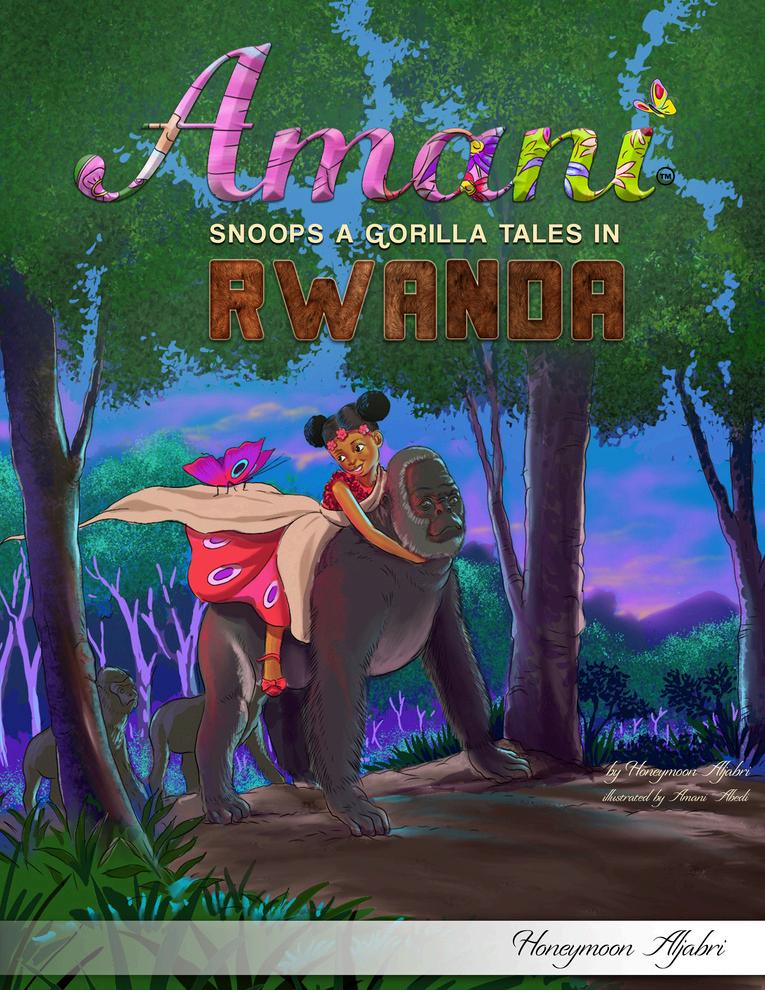


Monetary Aid Bretton Woods, New Hampshire, USA - July 22, 1944: In the shadow of World War II’s devastation, global leaders gathered to create a framework for economic cooperation to prevent future catastrophes. This historic meeting gave birth to the International Monetary Fund (IMF) and the World Bank, institutions designed to promote international monetary cooperation, exchange rate stability, and economic growth. With an initial membership in 40 countries, the IMF’s roster has since expanded to 190, boasting over $1 trillion in assets for lending during economic crises Africa’s Uneasy Relationship with the IMF Among the IMF’s 190 member countries, several African nations have become deeply entwined with the institution, often as reluctant recipients of its financial aid Egypt stands as the continent’s largest debtor, with an outstanding loan of $11 billion, representing 3 1% of its GDP Following close behind is Angola, with $3 billion (3 2% of GDP), Kenya with $3 billion (2 8% of GDP), Ghana with $2 billion (2 6% of GDP), and Ivory Coast, also with $2 billion (1 8% of GDP) These nations occupy prominent positions on the IMF’s list of top borrowers, second only toArgentina, which leads to a staggering $32 billion debt
However, the IMF’s policies and practices have not been without controversy. Critics assert that developed nations, particularly the United States, which wields the largest voting share dominate the institution’s decision-making process. This imbalance raises concerns about the representation and interests of developing countries, leading to several problematic outcomes:
1. Conditional Loans: IMF loans often come with stringent conditions, such as austerity measures, which can harm vulnerable populations.
2. Debt Dependency: These loans can create a cycle of debt dependency, making it difficult for countries to escape perpetual borrowing
3. Economic Liberalization: The IMF’s push for economic liberalization can cause job losses, reduced government revenue, and increased inequality.
4 **Lack of Local Ownership: ** IMF programs frequently impose policies without sufficient input from local governments, civil society, or citizens.
5. Critics criticize the IMF for promoting a neoliberal agenda that prioritizes free markets, privatization, and deregulation over social welfare and government intervention.
The IMF’s influence in Africa has been profound and often contentious. Notable examples include:
1. Ghana’s Debt Crisis in the 1980s: Structural change programs led to severe social and economic repercussions.
2. Kenya’s Structural change Programs in the 1990s: These measures resulted in significant public sector job losses and social unrest.
3. Zimbabwe’s Hyperinflation in the 2000s: Economic policies contributed to one of the worst cases of hyperinflation in history.
4 Egypt’s Economic Struggles Post-Arab Spring: The country has faced ongoing challenges in balancing economic reforms with social stability. Why Africa Should Reconsider Its Dependence on the IMF
The relationship between African nations and the IMF has often been one of necessity rather than choice. However, this dependency has significant drawbacks that need to be addressed:
1. Loss of Sovereignty: IMF-imposed conditions often undermine the sovereignty of African nations, forcing them to adopt policies that may not align with their unique economic and social contexts.
2 Social Impact: Austerity measures can lead to cuts in essential public services, disproportionately affecting the most vulnerable populations.
3. Stifled Growth: By prioritizing debt repayment and economic liberalization, IMF programs can stifle long-term economic growth and development.
4. Entrenched Inequality: The focus on market-driven reforms can exacerbate inequality, benefiting multinational corporations and wealthy elites while marginalizing local businesses and communities.
5. Erosion of Public Trust: The perceived alignment of the IMF with Western interests can erode public trust in local governments and international institutions.
Alternatives for African Economic Independence
In response to these challenges, African countries are increasingly exploring alternative financing options. Institutions like the African Development Bank and initiatives, such as the African Continental Free Trade Area (AfCFTA) aim to provide more regionally focused support and foster economic integration.
South-South cooperation collaboration with other developing countries like China, Brazil, or India offers new avenues for financing and technical help.

Conclusion: A Path Forward As Africa continues to navigate its complex relationship with the IMF, the continent’s leaders and citizens must strive for economic sovereignty and develop strategies that align with their unique contexts and needs. While engagement with global institutions remains necessary, it is crucial for African nations to assert their terms and priorities in these interactions. By doing so, they can work towards a future where economic policies truly serve their people, fostering growth, stability, and self-determination. People of Africa magazine aims to provide in-depth, critical analyzes of the issues affecting the continent, giving voice to the stories and perspectives that matter most to our readers.
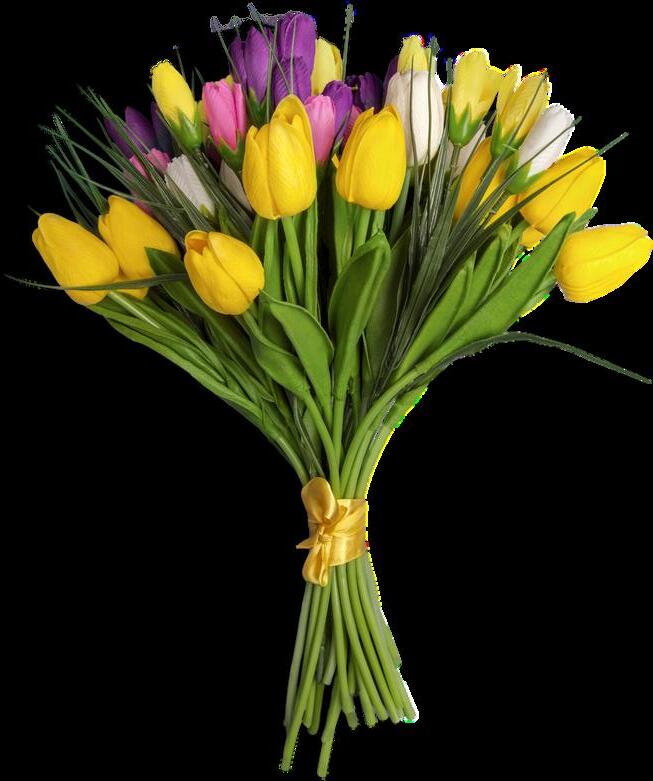
"With hearts full of pride and spirits that soar, we honor the extraordinary women who embody the essence of Africa's strength, resilience, and beauty. These remarkable individuals have shattered glass ceilings, defied odds, and inspired generations with their remarkable achievements. They are the shining stars that illuminate the path to a brighter future, the pillars that hold up the fabric of our communities, and the beacons that guide us towards a world where equality, justice, and freedom reign supreme. Let us celebrate their triumphs, learn from their struggles, and pay tribute to their unwavering dedication to making Africa and the world a better place. We proudly present to you.



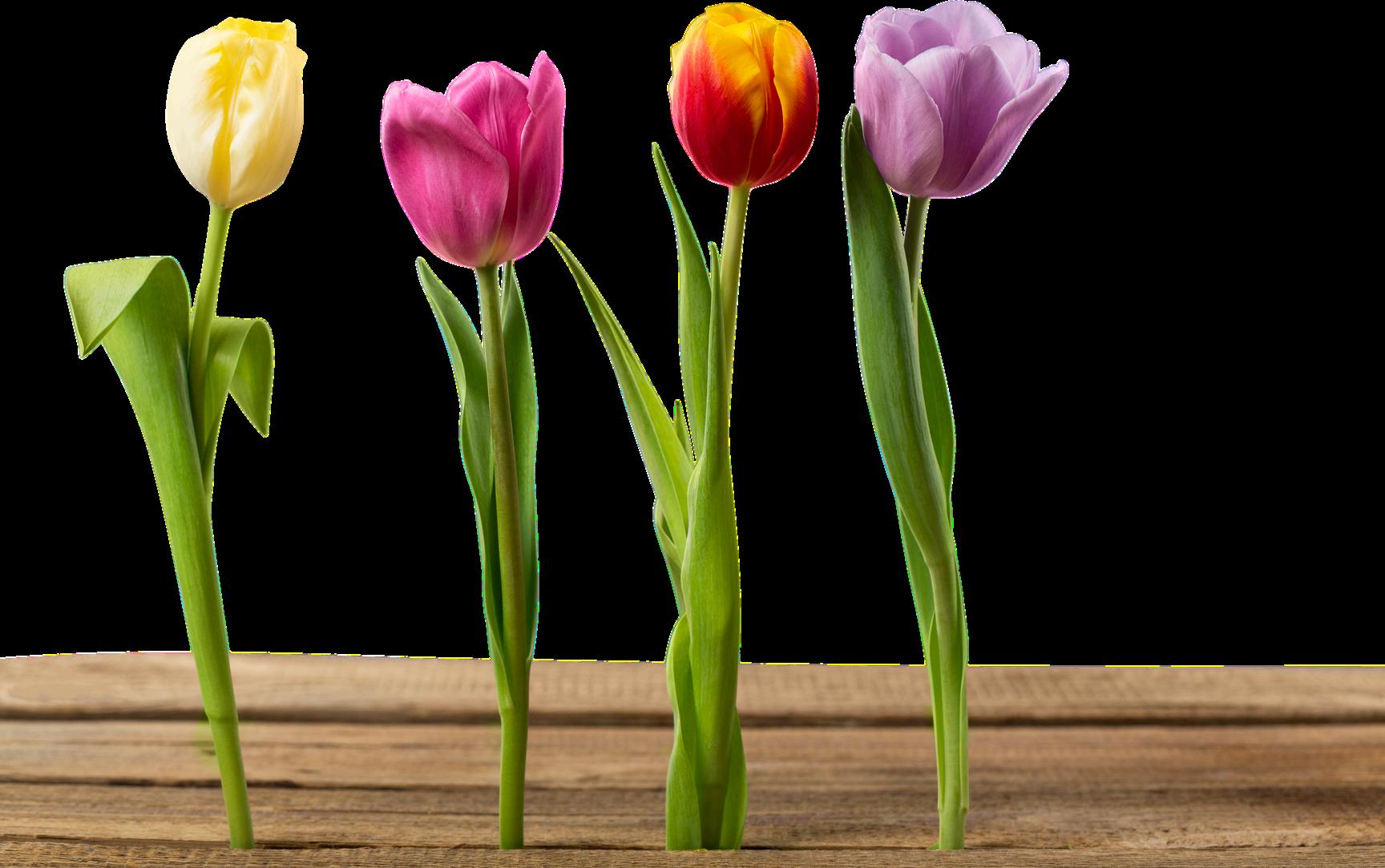

"Trailblazing Egyptian nuclear physicist Sameera Moussa, your remarkable legacy illuminates the path for African women in STEM. With unwavering dedication, you pursued a future where atomic energy benefits humanity. Your iconic quote, "I'll make nuclear treatment as simple as a blood test," echoes your visionary spirit. As the first woman to work at Cairo University, you broke barriers and ignited a spark for generations to come. We proudly celebrate your groundbreaking achievements and honor your memory as a true daughter of Africa, changing the world one discovery at a time. Your pioneering work continues to inspire us, reminding us that atoms can be a force for peace, progress, and a brighter tomorrow."
"I'll make nuclear treatment as simple as a blood test,"

"The greatest glory in living lies not in never falling, but in rising every time we fall."
Legendary singer, activist, and icon, Miriam Makeba, your voice echoed the hopes and struggles of Africa, inspiring generations. From humble beginnings in Johannesburg to international stardom, your talent, resilience, and determination paved the way for others. Your courage in the face of adversity, including exile from your homeland, only strengthened your message of freedom and equality. We celebrate your remarkable life, your unforgettable voice, and your unwavering commitment to justice. You will forever be the "Mama Africa" of our hearts.
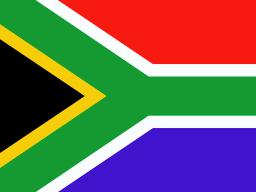

"We can't get to where we want to go, if we don't know where we ' ve been."
Trailblazing economist, visionary leader, and champion for women's empowerment, Ngozi Okonjo-Iweala makes Africa proud! As the first African woman to lead the WTO (world Trade Organization) and a renowned global expert, she inspires generations with her remarkable achievements and dedication to the continent's growth. Her legacy reminds us to honor our past, embrace our present, and shape our future with courage and resilience. We celebrate you, Ngozi Okonjo-Iweala, as a true daughter of Africa, paving the way for a brighter tomorrow

I am an African . I owe my being to the hills and the valleys, the mountains and the glades, the rivers, the deserts, the trees, the flowers the seas and the everchanging seasons that define the face of our land
Thabo Mbeki


Maize, also known as corn, is much more than just a staple food in Africa. It is a vital ingredient that has become deeply embedded in the continent’s culinary and cultural fabric. From the shores of North Africa to the vast savannahs of the south, and from the eastern highlands to the western coast, people across Africa celebrate and enjoy maize in countless forms, making it one of the most cherished ingredients. A Crop
That Sustains and Nourishes The reason maize is so beloved across Africa is its adaptability. This resilient crop thrives in a variety of climates and soils, making it accessible to communities across the continent.
Whether in the arid regions of North Africa or the fertile lands of East Africa, maize is a dependable source of nourishment. Its short growing season and relatively low labor requirements make it an ideal crop for small-scale farmers, ensuring food security for millions. Maize’s productivity is another key factor in its popularity. A single hectare can yield a substantial harvest, providing enough food to sustain families and communities. Furthermore, maize can be stored with ease, allowing it to be a reliable food source throughout the year, even during times of scarcity.
The story of maize in Africa begins in the 16th century when the Portuguese introduced it to the continent. Initially brought to supply trading forts along the coast, maize quickly spread across Africa due to its versatility and ease of cultivation. By the early 1700s, it had become a common crop in many regions, and over time, it became an integral part of African diets. Governments across Africa further promoted maize cultivation from the 1950s onwards, recognizing its potential to combat hunger and boost food production. Governments across Africa further promoted maize cultivation from the 1950s onwards, recognizing its potential to combat hunger and boost food production. As a result, governments across Africa further promoted maize cultivation from the 1950s onwards, recognizing its potential to combat hunger and boost food production. Today, African governments often refer to maize as the “king of crops” on the continent, recognizing its potential to combat hunger and boost food production.
Maize’s versatility extends beyond the fields it is the foundation of many beloved African dishes. In East Africa, Ugali is a staple in Kenya, often served alongside vegetables, meat, or fish. This simple yet satisfying dish is a daily essential, bringing families together around the dinner table. In Southern Africa, Nshima and Sadza are similarly important, serving as the centerpiece of meals in Malawi, Zimbabwe, and beyond.
Just as the Irish relied on potatoes, many African families consider a meal incomplete without maize porridge. It’s more than just food; it’s a symbol of sustenance and tradition, passed down through generations. Whether enjoyed as a soft, warm porridge in the morning or a firm, dough-like accompaniment to savory dishes at dinner, maize is a constant presence in African kitchens.

Maize is more than just a crop or a dish, it is a unifying force across Africa. Despite the continent’s vast diversity of cultures, languages, and traditions, maize is a common thread that links people from different regions. It’s a shared experience, a taste that resonates with millions, from bustling urban centers to remote rural villages. The enjoyment of maize is a testament to its versatility and ability to adapt to the diverse culinary traditions across Africa. People celebrate maize in countless ways, each with its own unique flavor and significance, whether they roast it on the cob, grind it into flour, or cook it into a hearty porridge.
Maize, Africa’s Culinary Cornerstone In Africa, maize is more than just a staple food. It’s a way of life. Its journey from the fields to the table reflects the resilience, ingenuity, and cultural richness of the continent. From North to South, East to West, maize is a cherished ingredient that nourishes, sustains, and unites. It’s a symbol of Africa’s agricultural heritage and a testament to the enduring importance of this humble yet powerful crop in the hearts and homes of millions.
The first time I encountered polenta was in a fancy restaurant, and by my side sat my now exboyfriend, who happened to be Italian. There I was, perusing the menu like a seasoned food critic, when my eyes landed on the word “polenta.” It sounded so exotic, so romantic I couldn’t resist.
With my Tanzanian accent in full force, I confidently ordered the “po-lent-a.” In just a few minutes, the dish arrived, adorned with a hefty price tag. As I took my first bite, I had to stifle a laugh. It hit me like a ton of bricks I had just paid “Kilimanjaro hotel” dinner prices for what essentially tasted like Ugali, the humblest of Tanzanian staples.
Lesson learned: sometimes, love blinds you to the absurdity of culinary adventures. But hey, despite the sticker shock, I must admit, I enjoyed every bite and even became a polenta enthusiast on my journey to culinary enlightenment.
PS: Don”t let a little menu mishap deter you from embracing new flavors and experiences. After all, sometimes the best meals come with a side of laughter and a sprinkle of unexpected discoveries.


1 cup jumbo shrimp, peeled and deveined2 tablespoons garlic butter - 1 cup cherry tomatoes, halved - 1 cup polenta - 1 teaspoon salt - 1/2 cup heavy cream - Fresh herbs of your choice for garnish (basil, parsley, or cilantro work well)

**Prepare the Polenta:** - In a medium saucepan, bring 4 cups of water to a boil. Add 1 teaspoon of salt. - Gradually whisk in the polenta, reducing the heat to low. Continue whisking to avoid lumps.
- Cook the polenta, stirring frequently, for about 20-25 minutes, until it’s thick and creamy - Stir in the heavy cream and continue cooking for another 5 minutes. Adjust the seasoning with salt to taste. - Remove from heat and cover to keep warm. 2. **Cook the Shrimp:** - In a large skillet, melt the garlic butter over medium-high heat - Add the shrimp and cook for 2-3 minutes on each side, until they turn pink and opaque group.
- Remove the shrimp from the skillet and set aside
3. **Prepare the Cherry Tomatoes:**
- In the same skillet, add the cherry tomatoes and cook for about 5 minutes, until they start to soften and release their juices.
- Season with a pinch of salt and stir to combine.
4 **Assemble the Dish:**
- Spoon the creamy polenta onto plates or bowls Top with the cooked shrimp and sautéed cherry tomatoes.
- Garnish with fresh herbs of your choice.
5 **Serve and Enjoy:**
- Serve immediately, enjoying the blend of creamy polenta, succulent shrimp, and juicy tomatoes with a fresh herb finish Enjoy your delicious, cross-cultural comfort food! Whether you ’ re reminiscing about South Africa Zambia, or imagining a new twist on African cuisine, this dish is sure to warm your heart and satisfy your taste buds.
Looking for a deliciously crispy alternative to traditional fries? Say hello to Polenta Fries! These golden sticks of goodness bring a taste of Italy to your table with a crunchy exterior and a creamy interior. Whether you’re serving them as a side dish or a snack, these Polenta Fries are sure to be a hit. Get ready to dip, crunch, and savor every bite!
1 cup polenta - 4 cups water or vegetable broth - 1 teaspoon salt - 1/2 cup grated Parmesan cheese - 1 teaspoon garlic powder - 1/2 teaspoon paprika (optional)Olive oil, for frying - Marinara sauce or your favorite dipping sauce, for serving ingredients

2. **Spread and Chill the Polenta:** - Line a baking sheet with parchment paper or plastic wrap. - Pour the cooked polenta onto the prepared baking sheet and spread it into an even layer, about 1/2 inch mooth the surface atula. Allow the o cool to room ure, then transfer the eet to the refrigerator for at least 1 hour, or polenta is firm and Cut into Fries:**polenta is chilled use a sharp knife to fries of your desired shape. Traditional about 1/2 inch thick nches long. 4. **Fry ta Fries:** - In a large at enough olive oil to bottom of the skillet 1/4 inch depth over heat. - Carefully place ta fries in the hot oil, ure not to overcrowd . You may need to fry atches.


- 2 medium zucchinis, sliced into rounds - 1 red bell pepper, thinly sliced - 2 cloves garlic, minced
- 2 tablespoons olive oil
- Salt to taste
- Red pepper flakes, to taste
- Juice of 1 lemon
- Fresh herbs (such as parsley or basil), chopped, for garnish
1. **Preheat Oven:**
- Preheat your oven to 400°F (200°C).
2. **Prepare Zucchini and Red Pepper:**
- Slice the zucchinis into rounds and thinly slice the red bell pepper.
3. **Toss with Garlic and Olive Oil:**
- In a large bowl, combine the zucchini rounds, sliced red bell pepper, minced garlic, and olive oil. Toss until the vegetables are evenly coated.
4. **Season and Arrange:**
- Spread the seasoned zucchini and red pepper slices in a single layer on a baking sheet lined with parchment paper.
- Sprinkle salt and red pepper flakes over the vegetables according to your taste preferences.
5. **Bake:**
- Place the baking sheet in the preheated oven and bake for about 20-25 minutes, or until the zucchini is tender and lightly browned around the edges.
6. **Drizzle with Lemon Juice:**
- Once baked, remove the zucchini and red pepper from the oven.
- Drizzle the baked vegetables with freshly squeezed lemon juice for a burst of citrus flavor.
7. **Garnish and Serve:**
- Transfer the baked zucchini and red pepper to a serving platter.
- Garnish with freshly chopped herbs, such as parsley or basil, for a pop of color and freshness.
- Serve as a delicious side dish or appetizer.
Pro Tip: You can sprinkle some grated Parmesan cheese over the baked zucchini and red pepper for added flavor.
Note: This baked zucchini with red pepper flakes is a simple yet flavorful dish that celebrates the natural sweetness of the vegetables. Enjoy the tender zucchini slices with a hint of heat from the red pepper flakes and the freshness of lemon juice. Enjoy


Who says you can’t have a bit of elegance with your comfort food? This recipe combines the rustic charm of small Irish potatoes with the rich flavors of garlic, butter, and fresh herbs. It’s a dish that’s crispy on the outside, fluffy on the inside, and absolutely irresistible. Perfect for impressing guests or just treating yourself to something special, these Garlic Butter Smashed Potatoes are your new go-to side dish.
- 1 5 pounds small red potatoes (or any small potatoes of your choice)
- 2 tablespoons olive oil
- 2 tablespoons butter
- 4 cloves garlic, minced
- Salt and pepper, to taste
- Fresh herbs of your choice for garnish (such as rosemary, thyme, or parsley)
1. **Boil the Potatoes:**
- Place the potatoes in a large pot and cover them with cold water. Add a generous pinch of salt.
- Bring the water to a boil over high heat, then reduce to a simmer and cook until the potatoes are tender when pierced with a fork, about 15-20 minutes.
Drain the potatoes and let them cool slightly.
2. **Smash the Potatoes: or cut into thick slices
- Preheat your oven to 400°F (200°C).
- Arrange the boiled potatoes on a baking sheet. if you choose to smash the hell out of these potatoes. Use a potato masher or the bottom of a glass, gently press down on each potato until it’s flattened but still in one piece.
3. **Prepare the Garlic Oil:**
- In a small bowl, combine the minced garlic and olive oil. Drizzle the garlic oil evenly over the potatoes, ensuring each one gets a good coating. Season with salt and pepper to taste.


4. Bake the Potatoes:
- Place the baking sheet in the preheated oven and bake for about 15 minutes, or until the potatoes start to turn golden brown and crisp around the edges.
5. **Add the Butter:**
- Remove the baking sheet from the oven and dot the potatoes with the butter. Return to the oven and bake for an additional 5-10 minutes, or until the potatoes are crisp and golden brown.
6. **Garnish and Serve:**
- Remove the potatoes from the oven and garnish with fresh herbs of your choice.
- Serve immediately and enjoy the delightful combination of crispy edges, buttery goodness, and aromatic herbs.
These Garlic Butter Potatoes are a perfect example of how simple ingredients can come together to create something truly spectacular. Whether you’re pairing them with a main dish or enjoying them on their own, they’re sure to be a hit!


EditedbyFrancisAfipaChirwa
Join me on a journey of love, pride, and self-discovery as I pen a heartfelt letter to the motherland, Africa. This collection of letters, poems, and articles is a celebration of Pan-Africanism and the beauty of African identity. Through my words, I pay tribute to the rich cultural heritage, resilience, and strength of the African people. I explore themes of identity, belonging, and the importance of reclaiming our narrative as Africans. With passion and conviction, I argue that Africa is for Africans, and that our continent's future should be shaped by us, for us. I share my thoughts on the importance of unity, self-determination, and the need for us to reclaim our rightful place on the global stage. This book is a labor of love, a call to action, and a testament to the power of our collective voices. It is a reminder that our stories, our culture, and our history matter. Join me on this journey as we celebrate the beauty, diversity, and greatness of Africa. Let us rise together and reclaim our rightful place as the leaders of our own destiny.
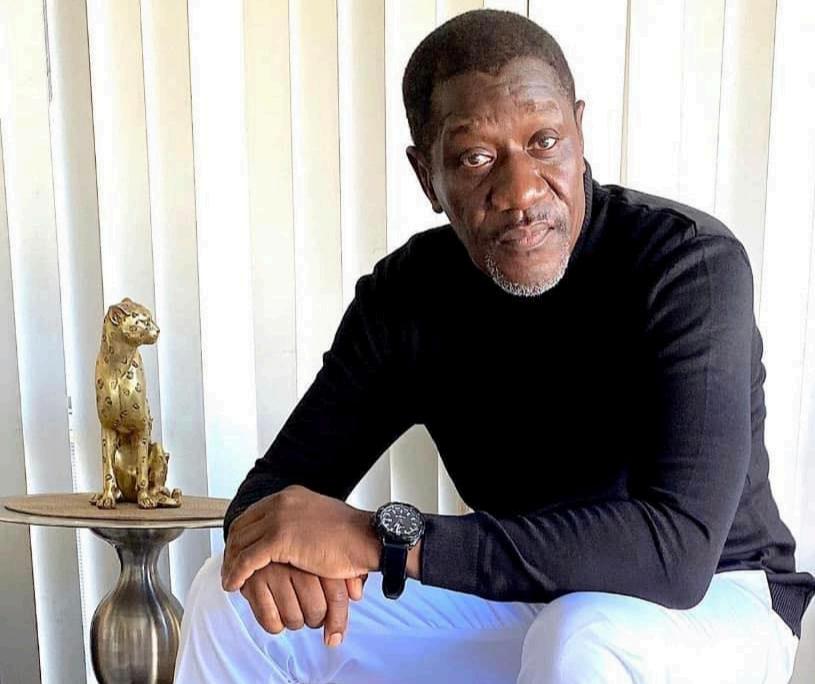

People of Africa magazine had the privilege of sitting down with Benjamin Onyango, one of Hollywood’s most acclaimed African actors. His journey from East Africa to the glitz and glamour of Hollywood is a testament to his resilience and undeniable talent. Once a rugby player with a melodious singing voice, Onyango embodies the pride of East Africa. His path to Hollywood was not an easy one. Breaking into the industry is notoriously difficult, especially for African dreamers who face far more obstacles than their white counterparts. While white actors often find doors more easily opened, black actors must push harder or create their own opportunities. For Africans, the challenge is even steeper. Despite these hurdles, Onyango has never let adversity deter him. He has relentlessly pursued his dreams, pushing through countless barriers. “If you don’t push, the door will never open,” he says, reflecting his indomitable spirit.

The gradual shift in Hollywood heartens Onyango. Increasingly, when scripts call for African characters, casting directors are choosing actors from the continent itself rather than African Americans.”This slight change is helping Africans leave their mark on Hollywood,” he observes. Onyango dedication lies in producing projects that create opportunities for Africans in Hollywood, although he cannot speak on behalf of all African actors.
Benjamin Alfred Onyango Ochieng was born in Ofafa Jericho Estate in Eastlands, Nairobi, Kenya. Onyango experienced the vibrant culture of East Africa during his early life, growing up as the second child in a family of seven brothers. His father, Christopher Ochieng, and mother, Eudiah Achieng Ochieng, provided a firm foundation for their children. Onyango began his education at Ofafa Jericho Primary and Secondary School. At 18, he began working at British American Tobacco Kenya Ltd (BAT), starting in the Wages Department before moving to the computer department. This early exposure to the corporate world provided Onyango with valuable skills, but his passion lay

elsewhere. He pursued higher education at the United States International University (USIU) in Kenya, studying Management Information Systems. His academic journey
later took him to USIU in San Diego, USA, and he graduated with a Bachelor of Science in Computer Science from California State University, Stanislaus in 1992.
“Working with Bruce Willis was a gift. I learned so much from this man,” Onyango explains, referring to his major film “Tears of the Sun.”; “Bruce was very keen on his craft; he would crack jokes, yet when the camera was rolling, he flipped back to business.” Onyango recounts that from that movie set, his foundation of respect, punctuality, and presence was born. After graduation, Onyango moved to Hollywood, California, a bold move fueled by his dreams of acting and music. He furthered his studies in music and acting and joined the Funk Rock band P.F.O. for a few years. However, the allure of acting soon took precedence. Onyango focused on acting professionally, leading to roles in many feature films and popular American television series. His early roles included appearances in”General Hospital,”The Shield, and The X- Files.” Onyango s breakthrough came with significant roles in Tears of the Sun, God’s Not Dead, and Beautifully Broken. His diverse filmography also includes “Heavenly Deposit, Father Africa, The Boy Road to Redemption ;Default, Kwame, Chains, Thunder Chance, The Disciple, American Crude, and The Terminal. As a voice actor, Onyango contributes to high-profile projects such as ;Last Face, ;Furious 7, Constantine, Night At the Museum I & III, Machine Gun Preacher, Inception, The Day the Earth Stood Still, Primeval, League of ExtraordinaryGentlemen, The Path to 911, Mighty Joe Young, ; and ERing.

“Onyango is also a writer, with credits in the TV series The Wives, the web series Dysfunctionally Organized ; and short films like Mind Tricks ; and Curse of Devil’s Mountain. His work extends to f Original Man. Through his varied roles, Onyango actively creates opportunities for African talent in Hollywood. Regular trips to Kenya keep Onyango grounded in his culture and roots. He believesAfrica has a plethora of stories waiting to be told by Africans themselves. Africa has so many stories to be told, and Africans need to tell their own stories,” he asserts. This conviction drives his efforts to produce and create platforms for African stories in Hollywood.When asked if Africans in Hollywood are doing enough to highlight their homeland and challenge stereotypes, Onyango responds thoughtfully, I don’t know what others are doing, but I am doing as much as I can to open doors for others. The Role of Streaming Platforms Netflix has become a major film distributor in Africa, showcasing many films from West, South, and North Africa. However, East African representation remains limited. When asked how East African filmmakers can gain more visibility, Onyango smiles wistfully and acknowledges the challenges. He notes that Nigeria’s large population creates a viable market within its borders, whereas East African artists struggle to succeed solely with their local audience.
“Onyango points out that Western perceptions of East Africa are often limited to the Masai people and wildlife. He believes East Africa is an exceptional filming location because of its diverse landscapes, ranging from rivers and seas to deserts and savannas, along with breathtaking national parks. He hopes that one day, African films will cross the ocean and captivate audiences in Western countries, much like African music has.

Reflecting on the Berlin Conference of 1884, Onyango agrees it played a significant rolein fracturing African cultures and communities. The Berlin Conference stripped Africa of its cultural unity and divided us into clans and communities,” he says. Onyango believes that a united Africa, telling inclusive African stories, could make a profound impact on the world. Future Aspirations and Legacy Looking ahead, Onyango is optimistic about the future of African cinema. He dreams of a time when African films are as globally recognized and celebrated as African music. He dedicates himself to nurturing the next generation of African talent, giving them the opportunities and platforms they need to succeed in Hollywood. An Actor’s Life: Beyond the Screen. Benjamin Alfred Onyango Ochieng’s journey is a powerful reminder of the resilience and talent that exists within the African continent. His story is not just one of personal success but also of paving the way for future generations of African artists. His career, marked by a blend of diverse roles and voice acting, showcases his versatility and dedication to his craft. Onyango’s impact extends beyond his onscreen roles. As a writer and producer, he is actively involved in creating content that reflects African narratives. His work in series like The Wives; and films like Cheza; and Original Man" demonstrates his commitment to telling authentic African stories. Onyango’s efforts are part of a larger movement within the African diaspora to reclaim and celebrate African identity and heritage. By producing and taking part in projects that highlight African culture, he contributes to a growing body of work that challenges stereotypes and promotes a more nuanced understanding of Africa and its people.
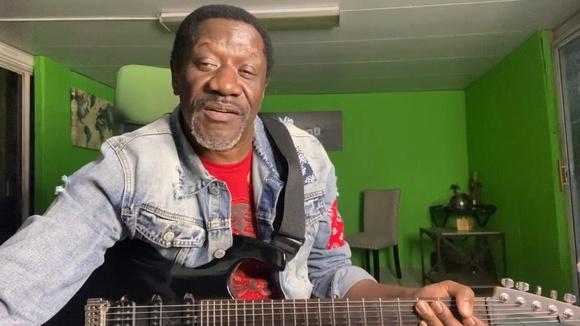
He believes East Africa is an exceptional filming location because of its diverse landscapes, ranging from rivers and seas to deserts and savannas, along with breathtaking national parks.
As Onyango continues to build his legacy, he remains hopeful for the future of African cinema. He envisions a thriving industry where African stories are told by Africans, for a global audience. He believes that by supporting each other and working together, African filmmakers can overcome the challenges they face and create a lasting impact on the global stage. His dedication to his roots and his commitment to his craft serve as an inspiration to aspiring actors and filmmakers across the continent. Onyango’s journey is a testament to the power of perseverance, talent, and the importance of staying true to ones heritage. Benjamin Onyango’s story is one of triumph over adversity, a journey marked by determination, talent, and a deep connection to his African roots From his early days in Nairobi to his successful career in Hollywood, Onyango has consistently broken barriers mand paved the way for others. His work as an actor, writer, and producer reflects his commitment to telling African stories and creating opportunities for future generations of African talent.

As Onyango continues to make his mark in Hollywood, he remains a proud ambassador of African culture and heritage. His story is a powerful reminder that with hard work, perseverance, and a commitment to authenticity, it is possible to achieve great things and inspire others along the way. In closing, when asks what Africa means to him, Onyango responded with a big laugh and grin, Everything Indeed, Africa is everything Thank you, Benjamin Onyango, for sharing your incredible journey with People of Africa magazine. Your story is a beacon of hope and inspiration for all who dare to dream big.
Africa, my soul’s terrain where savannas stretch and love remains in your warmth , I find my home a drop in your ocean, forever roam Africa my heart’s land where love resides, and soul expands

AJOURNEYTHROUGHTHE
HEARTOFEASTAFRICA:
Kenya, a jewel of East Africa, captivates with its stunning landscapes, rich history, and vibrant culture. This land of diversity is a tapestry woven with the threads of nature’s grandeur, ancient heritage, and modern dynamism. Let’s explore the beauty of Kenya, a country where every corner tells a story, and every fact deepens your connection to this incredible nation.
Kenya’s landscape is a breathtaking canvas that showcases the Earth’s diversity. From the shimmering shores of the Indian Ocean to the rugged heights of Mount Kenya, the country offers a feast for the senses. Travelers are welcome to bask in the sun and soak in the tranquil beauty of the Indian Ocean on the low coastal plain, which features swaying palms and pristine beaches. As you move inland, the landscape shifts dramatically to mountains, plateaus, and broad plains. These plains stretch endlessly, merging into the iconic savannahs that are synonymous with Kenya’s wild heart. However, it’s the Great Rift Valley that truly steals the show a monumental 6,400- kilometer tear in the Earth’s crust that slices through Kenya from north to south. This geological wonder is not just a sight to behold but a cradle of life, nurturing ecosystems that are as ancient as they are diverse.

Within this valley lies Lake Turkana, a turquoise gem set against the backdrop of desert landscapes. Known as the Jade Sea, this lake is the largest desert lake in the world and a vital lifeline for the communities and wildlife that call its shores home.
The linguistic diversity in Kenya reflects its cultural richness. While Swahili and English serve as the official languages, the country is a linguistic mosaic, home to 62 other languages spoken by various ethnic groups. From the melodic tones of Bantu languages to the rhythmic cadences of Nilotic languages, each language carries the history, traditions, and stories of Kenya’s people.
This linguistic diversity is more than just a means of communication; it’s a testament to Kenya’s ability to harmonize its many voices into a unified national identity. It’s in the bustling markets, the vibrant music, and the daily interactions where this mosaic truly comes to life.

Nairobi: The Capital of Nature and Progress
Nairobi, Kenya’s bustling capital, is a city where the future meets the past in a seamless blend of tradition and modernity. Nestled in the highlands at an altitude of 1,700 meters, Nairobi is not only the political and economic heart of Kenya but also a unique capital in more ways than one. What sets Nairobi apart is its extraordinary relationship with nature. The city is the only capital in the world that boasts a national park within its boundaries. Nairobi National Park, a haven for wildlife, is a thriving rhinoceros sanctuary, where these majestic creatures roam freely against the backdrop of the city’s skyline. This juxtaposition of urban life and untamed wilderness is a vivid reminder of Kenya’s deep-rooted commitment to conservation. The Cradle of Humanity People often refer to Kenya as The Cradle of Humanity, and for good reason.
offering invaluable insights into our earliest ancestors. The Turkana Basin, in particular, is a treasure trove of paleontological finds, making Kenya a focal point in the study of human evolution. These ancient fossils are not just relics of the past; they are a connection to the dawn of humanity, reminding us of our shared origins and the journey of our species over millennia. Kenya’s role in this story is profound, cementing its place in the annals of history as a key to understanding where we come from.

cting its country move in decision on its a’s wildlife ri, you’ll ore humans frica. re teeming Migration in nt ers an e one of lope’s ven by the
Beyond its iconic wildlife and historical significance, Kenya is a country rich in natural and cultural treasures. It shares borders with five countries: Ethiopia, Uganda, Somalia, Tanzania, and South Sudan, making it a crossroads of cultures and a hub of East African connectivity. Mount Kenya, the second-highest peak in Africa, is a majestic presence that offers climbers and adventurers a challenging yet rewarding ascent. Its snow-capped peaks, surrounded by lush forests, are a sight to behold, embodying the raw beauty of Kenya’s highlands. Kenya’s fertile lands have made it a global leader in the production of coffee, the country’s biggest export. The rich, aromatic beans grown in Kenya’s high-altitude regions are renowned for their quality and flavor, making Kenyan coffee a favorite among connoisseurs worldwide. And when it comes to sports, football (soccer) reigns supreme in Kenya. The passion for the game is palpable, with communities across the country coming together to support their teams, from local clubs to the national team, Harambee Stars. Football in Kenya is more than just a sport; it’s a unifying force that brings people together, transcending ethnic and social divides.


Kenya is a country that defies simple description. It’s a place where ancient history meets modern progress, where the wild heart of Africa beats strongly, and where diverse cultures blend into a harmonious whole. Whether you’re exploring the savannahs, climbing the heights of Mount Kenya, or immersing yourself in the vibrant life of Nairobi, Kenya offers experiences that are as profound as they are unforgettable. In every aspect, geography, language, history, and wildlife Kenya stands out as a beacon of beauty and pride in Africa. It’s a nation that invites you to explore its wonders, to connect with its people, and to experience the magic that makes Kenya truly special.

African music is unique, carrying a vibrant and diverse spirit. No matter theregion, north, south, east, or west African music has the power to move souls.”I would love to collaborate with Afrobeat musicians and mix the flavor of traditional Rai music, because Algeria’s traditional music can connect its soul to any music possible” says Yassin Algero, an Algerian musician whose journey from the heart of Algeria to the stages of America embodies the spirit of African resilience and artistry.
On Algeria’s Independence Day, Washington, D.C., witnessed an electrifying performance by Yassin Algero, a musician whose journey from the heart of Algeria to the stages of America embodies the spirit of African resilience and artistry. Born in the historic city of Setif, Algero’s story is a testament to the transformative power of music and art.
Yassin Algero’s love for the arts blossomed early. Initially expressing himself through painting and other visual arts, he soon discovered a deeper calling in music. During his school days, Yassin Algero’s attendance in music classes sparked this newfound passion, igniting a curiosity that would shape his future. By the age of 17, at the urging of a cousin, he joined a local band and began performing in small towns across Algeria. From the moment he first gripped the microphone and stood before an audience, he was captivated.
At 20, Yassin moved to the bustling city, where his interests expanded to include songwriting, producing, and musical arrangement. It was here that he recorded his first songs in a professional studio, marking the beginning of his career as a musician. Collaborating with other artists and producers, he joined a prominent band in Algeria’s capital, setting the stage for his ascent.
Touring across North Africa, from Tunisia to Egypt, Yassin’s popularity soared. Yet, his ambitions reached beyond the continent. In 2005, a music producer invited him to tour the United States. His debut American performance in Detroit, opening for renowned Tunisian singer Saber, Elrobai, was a turning point. Captivated by the vibrancy of America, Yassin moved to New York City, where he continued to develop his craft, creating music videos and writing new songs.

Yassin’s musical journey began with humble steps, playing percussion with friends and gradually mastering the keyboard and guitar. Overcoming shyness, he pursued singing with determination, often borrowing instruments to practice due to financial constraints. A selftaught artist, Yassin honed his skills by absorbing diverse international music styles, crafting a unique sound that resonates with audiences worldwide. The hallmark of Yassin Algero’s music is its ability to connect to the African continent through the universal language of rhythm and melody. His dream is to collaborate with Afrobeat musicians, creating music that celebrates the richness and diversity of African culture. By blending traditional Algerian sounds with the vibrant beats of Afrobeat, Yassin aims to produce music that not only entertains but also unites and inspires pride across Africa. For more information on Yassin Algero’s latest videos and performances, visit [www.YassinAlgero.com] . People of Africa magazine celebrates and thanks Yassin Algero for highlighting African culture on the global stage.
As the curtain falls on the 2024 Olympics, we take a moment to shine a spotlight on the remarkable achievements of African athletes who have defied expectations and made their mark across a range of sports. This year’s Games have been a testament to the versatility and spirit of Africa’s finest, who have not only upheld the continent’s storied tradition in longdistance and marathon events but have also excelled in disciplines that are less traditionally associated with African successFrom the thrilling fields of lesserknown sports to the arenas where Africa has long shone, these athletes have showcased an extraordinary blend of talent, dedication, and pride. Their performances have resonated far beyond their individual victories, representing a powerful narrative of African excellence on the global stage.
From the thrilling fields of lesser-known sports to the arenas where Africa has long shone, these athletes have showcased an extraordinary blend of talent, dedication, and pride. Their performances have resonated far beyond their individual victories, representing a powerful narrative of African excellence on the global stage. In sports where Africa has traditionally been underrepresented, our athletes have stepped up with impressive displays of skill and perseverance. South Africa’s field hockey team delivered a standout performance, securing a memorable 5-2 victory over the host nation, France, exemplifying the strength and strategy that characterize African sportsmanship.
South Sudan’s unexpected triumph over Puerto Rico in basketball, coupled with their near victory against the USA in pre-Olympic games, has been a heartening story of emerging talent and resilience. Their achievements have marked a significant milestone for the nation and for African basketball. The Nigerian women’s basketball team captured the continent’s imagination with their spirited performances, lifting the collective pride of Africa with every game. Their presence on the court has been a celebration of athletic excellence and an inspiration to many.
In soccer, Morocco and Egypt demonstrated the depth of Africa’s footballing tradition with skillful displays that highlighted the continent’s rich heritage in the sport. Their performances have been a reminder of the passion and talent that Africa brings to the world’s most popular game. South Africa’s Rugby Sevens team made an indelible impact, demonstrating the power and agility that are hallmarks of African rugby. Their success has reinforced Africa’s reputation in this dynamic sport and showcased the continent’s competitive edge. We also celebrate the achievements of athletes in non-traditional African sports. The stunning performances of African athletes in disciplines beyond the norm highlight the breadth of talent across the continent and showcase the ability of African sports to thrive in any arena.
As we honor these exceptional athletes, we celebrate their contributions to Africa’s sporting legacy. Their achievements not only reflect their personal dedication and hard work but also embody the spirit and pride of a continent that continues to shine brightly on the world stage. Africa is proud of you all. Your accomplishments have brought honor to our land and inspired generations to come.

People of Africa are bursting with pride as we extend our heartfelt congratulations to the Egyptian artistic swimming team, who shone brilliantly at the 2024 Paris Olympics. With their mesmerizing routine, aptly titled “Eye on Africa,” this talented group has not only captivated audiences but has also elevated Africa’s presence on the global stage. Comprising Farida Abdelbary, Mariam Ahmed, Nadine Barsoum, Amina Elfeky, Hana Hiekal, Salma Marei, Sondos Mohamed, and Nihal Saafan, the team delivered a performance of exceptional technical complexity and artistic finesse. Their dedication and cultural pride were clear in every graceful movement and synchronized formation.In the team free routine, the Egyptians achieved an impressive score of 243.9896, which contributed to their overall total of 486.7547.
This remarkable total secured them a notable 10th place finish, reflecting their extraordinary skill and high difficulty in their routine, which was a commendable 44.550.
We extend our deepest thanks to these remarkable athletes for their incredible effort and dedication. Your performance has not only made your country proud but has also illuminated the global stage with African brilliance. You have showcased the world what team Africa is capable of, and your achievement is a shining testament to the talent and spirit of our continent.

While the world’s spotlight may have focused on Simone Biles and Rebeca Andrade, African eyes fixed on a new star emerging from the gymnastics arena. In a highly emotional triumph at the 2024 Paris Olympics, Kaylia Nemour of Algeria made history and won the admiration of millions. Kaylia Nemour made history as she clinched the gold medal on the uneven bars, becoming the first Algerian and African gymnast to win an Olympic medal. Her extraordinary performance not only marked a monumental milestone for Algeria, but also for the entire African continent. People of Africa, we extend our deepest gratitude to Kaylia for her incredible dedication and talent. Your triumph has not only made your country proud but has also illuminated the path for future generations of African athletes. Your victory is a testament to the strength and spirit of Africa, and we celebrate this historic moment with immense pride.
Africa’s presence was unmistakable, with remarkable achievements that captured the world’s attention. Among the standout champions was South Africa’s Tatjana Smith, who graced the pool with her brilliance in what would be her final Olympic appearance. At 27, this swimmer from Pretoria made a lasting impression by securing gold in the women’s 100m breaststroke and adding a silver medal in the 200m breaststroke just three days later. Her stellar performance not only marked a high point in her career but also solidified her legacy as one of Africa’s swimming greats. As we celebrate Tatjana’s remarkable achievements, we also extend our heartfelt admiration to a rising star from Tanzania. Seventeen-year-old Sophia Latif may have finished her heat in last place, but her determination and skill shone brightly on the world stage. Sophia’s courage and perseverance have not gone unnoticed, and while this was Tatjana’s final Olympics, we eagerly anticipate Sophia’s future endeavors and hope to see her excel in the next Games. People of Africa, let us honor both Tatjana and Sophia for their outstanding contributions. Tatjana’s final Olympic performances have set a high bar for excellence, while Sophia’s debut signifies the bright future of African swimming. Your achievements are a source of immense pride and inspiration for us all.

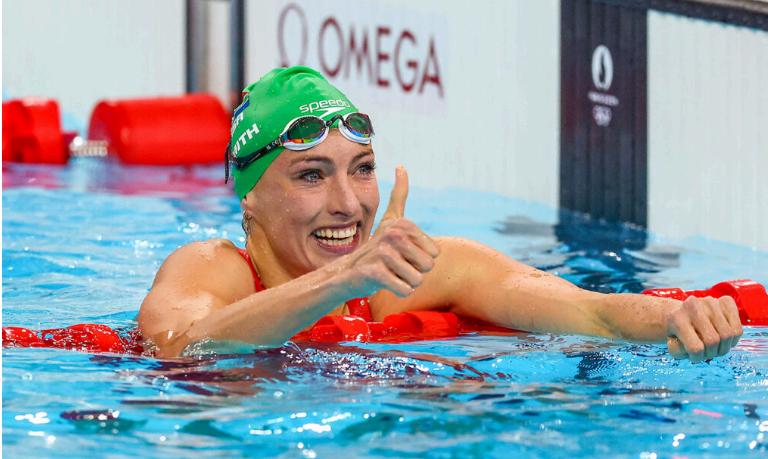

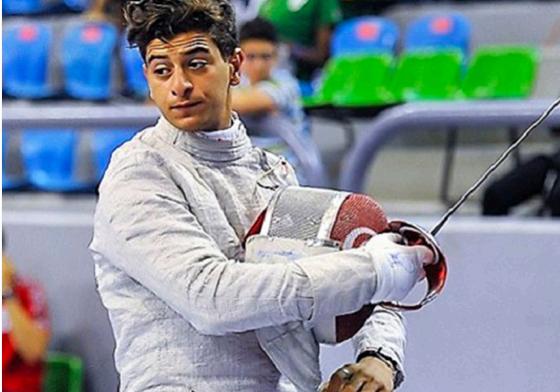
FARESFERJANI
As the 2024 Paris Olympics come to a close, Africa’s presence has illuminated the global stage with remarkable achievements. Our continent’s spirit and strength were evident in the diverse and inspiring performances of our athletes.
In the realm of fencing, Egypt’s Mahmoud Elsayad and Tunisia’s Fares Ferjani have etched their names into Olympic history. Mahmoud Elsayad clinched a bronze medal in the men’s epee individual event, while Fares Ferjani earned a silver medal in the men’s sabre individual. These victories are not just medals; they are symbols of dedication and excellence, proudly representing their nations as their only medals so far.
A story of perseverance and inspiration comes from Egypt’s Nada Hafez, who competed in fencing while seven months pregnant. Her courage and determination serve as a powerful message to young women everywhere: with belief in yourself, you can achieve anything. Guinea’s Fatoumata Diallo made history as the country’s first Olympic archer, proudly wearing her hijab as she competed. Her achievement is a beacon of hope and pride for all Africans, demonstrating that barriers can be overcome with determination and faith.


DAVIDDEPINA
Cape Verde’s David De Pina also made history by securing his nation’s firstever Olympic medal in boxing. His triumph is a significant milestone for Cape Verde and a testament to the burgeoning talent emerging from across our continent. In every event, from the water to the fencing mat, Africa’s athletes have showcased unparalleled skill and tenacity. As we celebrate these extraordinary accomplishments, let us take pride in the brilliance and determination of our Olympians. The 2024 Games have indeed been a testament to Africa’s shining light on the global stage.
The 2024 Olympics have been a significant moment for African athletics, showcasing exceptional sprinting performances. Historically celebrated for its dominance in middle and long-distance running, Africa has now emerged as a formidable force in sprinting, showcasing a future as vibrant and promising as its marathon legacy.
The extraordinary achievement of 19.46 seconds by Letsile Tebogo from Botswana has become a defining moment in African sprinting history. This time not only secured him the Gold medal but also shattered barriers, placing Africa firmly on the global sprinting map. Tebogo’s victory symbolizes a new era for the continent, as he became the first African sprinter to claim Olympic gold. “This victory is monumental for the African continent. It shows that Africa is now a home of sprinting greatness,” Tebogo remarked, reflecting the continent’s newfound pride.


The 2024 Olympics saw Africa’s athletes delivering remarkable performances across the board. In the men’s 200 meters final, the continent’s representation was both impressive and historic.
Zimbabwe’s Tapiwanashe Makarawu and Makanaishe Charamba, Liberia’s Joseph Fahnbulleh, and the trailblazing Tebogo competed with unmatched spirit, highlighting Africa’s growing dominance in sprint events. South Africa’s Akani Simbine made waves with his bold statement: “I am revolutionizing how South Africa views sprinting.” Simbine’s commitment and groundbreaking performances have set new standards for the sport within the country and across the continent. His achievements are a testament to the strengthening landscape of African sprinting. Other trailblazing sprinters such as Marie-Josée Ta Lou of Côte d’Ivoire, and Ferdinand Omanyala of Kenya, delivered a stellar performance in their best, have also played pivotal roles. Their dedication and hard work have helped to reshape the narrative of sprinting in Africa.
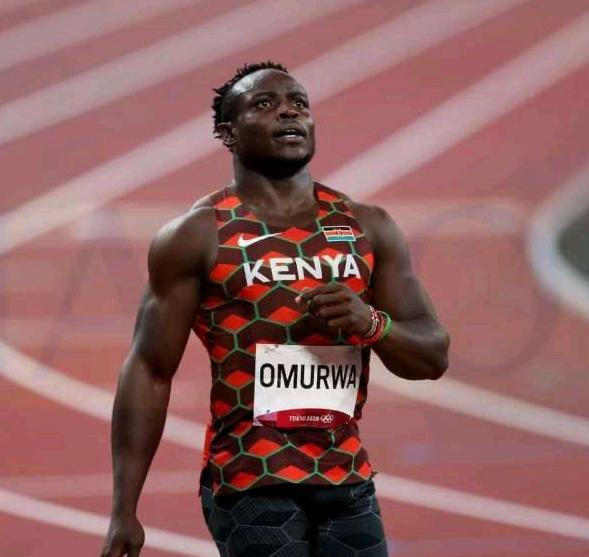
2024 Olympic cycle has been transformative for Africa, as athletes have not only competed but have also excelled, redefining the global perception of African sprinting. From the track to the podium, the performances of these athletes reflect their unwavering dedication, passion, and the bright future of African athletics. As we celebrate this historic moment, let us embrace the dawn of a new era in sprinting. The 2024 Olympics have affirmed that Africa’s athletic prowess is not only formidable but also inspirational, marking a significant milestone in the continent’s rich sporting legacy.

In the annals of Olympic history, few stories are as evocative as that of Abebe Bikila, the barefoot legend who first captured the world’s attention by winning back-to-back marathon golds at the 1960 Rome Olympics and the 1964 Tokyo Games. Bikila, the pioneering Ethiopian athlete, did more than secure medals; he ignited a legacy that continues to inspire African runners to this day. Bikila’s triumph was more than just winning the race; it was a moment that broke new ground for African athletics. By running barefoot, he demonstrated the profound connection between the African runner and the earth, showcasing a blend of raw talent and resilience that would define future generations. His achievements opened the doors for countless African athletes to rise and excel in long-distance and marathon running events, where Africa now feels truly at home.
Today, the marathon medals are ours to claim, and the tradition of long distance running remains a source of immense pride for the continent. From the dusty trails of East Africa and North Africa, African runners have continued to uphold and expand upon this rich heritage. Their dedication and prowess in these events resonate with Bikila’s spirit, and their performances remind the world of Africa’s enduring strength in distance running.

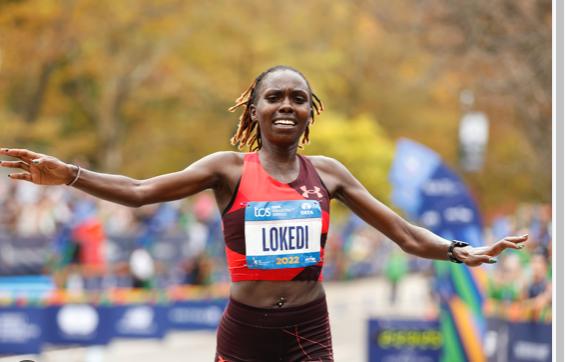



To all the marathon and long-distance runners of Africa, we extend our heartfelt gratitude. Your relentless pursuit of excellence and your unwavering commitment to the tradition of African endurance sports make our land shine with unparalleled pride. As you continue to carry forward this illustrious legacy, know that all who take pride in Africa’s athletic achievements celebrate and cherish your efforts.
WETHANKYOUALL
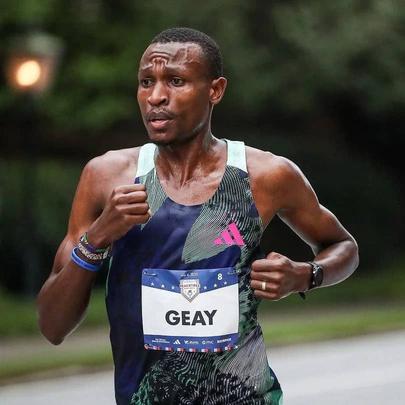




“People often hail the Olympics as the pinnacle of athletic achievement, where gold medals and world records capture the headlines. Yet, the true essence of these games transcends the podium. Every four years, athletes from around the globe step onto the grand stage, not just to win but to showcase the raw courage and determination that define their journeys. While many stories make headlines for their medals, it is often the narratives of perseverance, grit, and unyielding spirit that resonate most deeply. In this spirit, People of Africa shines a spotlight on two remarkable men whose stories embody the heart and soul of the Olympic ideal: Eric Moussambani and John Stephen Akhwari. These African heroes may not have walked away with medals, but their courage and tenacity have left an indelible mark on the hearts of many. Eric, known as Eric the Eel, and Akhwari, the last finisher of the 1968 marathon, represent the genuine spirit of the Games. They showed that victory is not solely about crossing the finish line first, but about embracing the journey with honor and resilience. In celebrating these extraordinary men, we honor their unwavering dedication and the hope they inspire. Eric and Akhwari, we thank you for showing us that the dedication to never give up is a greater measure of triumph than medals. Keep shining brightly.

Call it luck or destiny, but when its your time to shine, no one can dim your light. Eric Moussambani, famously known as ”Eric the Eel,” swam his way into history with a splash that no one saw coming. On September 19, 2000, the world watched as Eric dove into the Olympic pool, his determination palpable. Two competitors disqualified for false starts paved the way for Eric’s unique victory. The first 50 meters were a breeze, but as he turned for the final stretch, fatigue set in. The crowd of over 17,000 erupted in cheers, willing him forward. With every stroke, Eric defied his limitations, finishing with a time of 1:52.72 the slowest in Olympic history, but a personal and national triumph, nonetheless. Eric’s journey began in his homeland, where qualifying for the trials was easy, mainly because he was the only one who showed up. In the heart of Equatorial Guinea, where lush greenery meets serene waters, a young man named Eric Moussambani Malonga embarked on a journey that would captivate the world. Born on May 31, 1978, Eric became an unexpected hero at the 2000 Summer Olympics in Sydney. His tale is not just about swimming; it’s a testament to the power of determination, the strength of one’s roots, and the serendipity that life often offers.
Eric’s story resonated globally, symbolizing resilience and the essence of the Olympic spirit. By 2004, he had shaved his time down to 56.9 seconds and later achieved a personal best of 52.18 seconds. Unfortunately, he couldn’t compete in the 2004 Olympics because of a passport issue, but he had already established his legacy. In 2012, Eric became the coach of the national swimming squad of Equatorial Guinea, guiding future generations with the same determination that propelled him into the international spotlight. His journey inspired not only swimmers but also anyone who dared to dream beyond their circumstances. Eric’s story is a powerful reminder that courage often blooms in the most unexpected places. His tale is a celebration of home, the place that shapes us and the luck within, the serendipity that turns challenges into opportunities. It shows that sometimes, the courage to finish the race, no matter the odds, is what truly defines the greatest victories rather than medals. So, here’s to Eric the Eel, whose slowest swim became a beacon of hope, proving that with determination, the power of home, and a bit of luck, anything is possible.


Unlike Eric the Eel, John Stephen Akhwari knew exactly what to do, yet fate had a different direction in mind. “My country didn’t send me 5000 miles to start the race, my country sent me to finish,” he declared with courage. These were the words of the last finisher of the 1968 Summer Olympics marathon in Mexico City. He didn’t win a medal. In fact, he came nowhere nearby. But, in defeat and in pain, he came to represent something much more profound and enduring than many sports competitors achieve in illustrious careers. Perhaps because of the effects of the high altitude, Akhwari succumbed to cramps that slowed his progress. If that was painful, then worse was to come after he was involved in a melee of athletes jockeying for position. Akhwari fell to the ground, gashing his knee and dislocating it. He also smashed his shoulder against the pavement. Most observers, seeing his injuries, assumed he would pull out and go to the hospital. Instead, he received medical attention and returned to the track to continue his race.
His pace, of course, was now much slower, but his resolve to complete the event remained intact. Eighteen of the 75 starters had pulled out; he did not wish to add to that number. And so, more than an hour after the winner, Tanzania’s Akhwari crossed the line in last place, cheered home by a few thousand spectators who had remained in the stadium after the sun went down. The organizers had already awarded the medals. By the time he reached the stadium, he was limping and the bandage around his leg was flapping in the breeze.
Akhwari recovered from his injuries and continued running long-distance races. He finished fifth in the marathon at the Commonwealth Games in 1970 and also ran the 10,000m at the same championships. He was an excellent runner, but his performance, courage, and dedication in the face of adversity are what history will remember him for. Sometimes, it’s not about the medals one brings home. Pride and courage go a long way. Akhwari showed us how to persevere and push the limits of human power, proving that the genuine victory lies in the unwavering determination to finish the race, no matter the odds.
"MY COUNTRY DIDN'T SEND ME 5000 MILES TO START THE RACE, MY COUNTRY SENT ME TO FINISH,


Where Are the Me Too Movement and Feminists When It Comes to African Athletes? In a world increasingly focused on gender equality and women’s rights, one pressing question remains: where do the Me Too movement and feminists stand when African women face unfair scrutiny and marginalization? The recent controversies surrounding South Africa’s Caster Semenya and Algeria’s Imane Khelif bring this issue into sharp relief. Both athletes have faced relentless challenges in proving their womanhood and athleticism in the face of unfounded accusations and prejudiced scrutiny Yet, while Western feminists and advocates rally behind athletes in their own countries, the outcry for African women’s struggles remains notably absent.

As global media and political figures express outrage over the perceived injustices faced by white athletes, the underlying question persists: is this outrage a punishment for African excellence? People seem to use the phenomenon of “white tears” as a tool to undermine and punish people of color, where they use the emotional distress of white individuals. This double standard becomes glaringly clear in the cases of athletes like Imane Khelif, who, despite her remarkable achievements, find herself at the center of a storm fueled by racial and gender biases. Is the world’s sympathy truly fair, or is it selectively applied to maintain a skewed hierarchy that marginalizes African success?

If she were European or American, would they treat her this way? In the world of sports, where excellence should be celebrated without bounds, one must question if they would treat her as if she were European or American. Caster Semenya’s story, one of unparalleled achievement and intense scrutiny, reflects the challenges African athletes often endure when their greatness becomes undeniable.
Mokgadi Caster Semenya, a daughter of Africa, born on January 7, 1991, in GaMasehlong, South Africa, stands as one of the most exceptional middle-distance runners the world has ever seen. Her journey from a small village in the northern Limpopo province to the pinnacle of global athletics is a testament to her indomitable spirit and talent. Semenya’s rise to stardom began in Fairlie, where she grew up with three sisters and a brother, in a community that would later rally behind her in the face of adversity. Semenya’s breakthrough came at the 2009 World Championships, where she clinched gold in the 800 meters. This was the beginning of a storied career that saw her win gold medals at the 2016 Olympics and the 2017 WorldChampionships, as well as a bronze in the 1500 meters. The authorities retroactively awarded Semenya gold medals for the 2011 World Championships and the 2012 Olympics after is qualifying Mariya Savinova for doping. Despite her remarkable achievements, controversy soon followed. After her victory at the 2009 World Championships, officials subjected Semenya to sex testing, sparking intense debate. The tests revealed Semenya has 5α-Reductase 2 deficiency, a condition that results in natural testosterone levels in the typical male range.
In 2019, World Athletics (formerly the IAAF) introduced regulations requiring athletes with certain differences in sex development (DSDs) to undergo medication to suppress their testosterone levels to compete in women’s events from 400m to 1500m. Semenya refused to comply with these rules, arguing that they are discriminatory. Her legal battles to compete without undergoing testosterone suppression have been numerous and ongoing. Semenya’s condition, 5α-Reductase 2 deficiency, affects genetic males with XY chromosomes. Despite the medical and legal challenges, Semenya has consistently rejected the “interse” label, describing herself as “a different kind of woman.” Her stance underscores her identity and the uniqueness of her experience. The highest international court in sport dismissed Semenya’s challenge to the World Athletics rules, which means they might force her to take medication to reduce her testosterone levels or bar her from her favorite events. This ruling has profound implications not only for Semenya but for the broader debate on gender and fairness in sports.
story is a powerful reminder of the intersection between excellence, identity, and prejudice.

Caster Semenya’s story is a powerful reminder of the intersection between excellence, identity, and prejudice. Her tenacity and exceptional talent have brought excitement and attention to women’s running, a sport often underexposed and overshadowed. As athletes like Eliud Kipchoge push the boundaries in marathons, Semenya’s struggle highlights the ongoing challenges faced by female athletes in positing fairness and recognition. Semenya’s journey, marked by triumphs and trials, continues to inspire and provoke critical discussions about what it means to be female in sport. Her resilience in the face of adversity exemplifies the spirit of a staunch champion, one who fights not just for medals, but for the right to be herself.

It seems the world’s feminists are only available for the women in the Western hemisphere. Why must Africans constantly prove themselves to be the best in a world led by fake news? From South Africa’s Samanye to North Africa’s Imane, both athletes have had to prove their womanhood just to compete at their best, while openly transgender athletes in the Western world compete without issue, often being congratulated for their bravery. The Western media outrage over gold medal Algerian boxer Imane Khelif, from politicians to celebrities who did not know who she was, underscores this hypocrisy. Imane Khelif, undeterred by the global controversy over her gender, brought home a medal for her country. She exploded into the global spotlight when her Italian opponent, Angela Carini, withdrew just 46 seconds into their match, tearfully citing a punch to the nose harder than she had ever experienced.
The controversy intensified when the International Boxing Association (IBA), not recognized by the International Olympic Committee (IOC), disqualified Khelif and Taiwanese boxer Lin Yu Ting from last year’s World Championships over an unspecified gender test. This sparked unfounded accusations that they were male.
Carini later apologized, claiming she was upset about losing, not making a political point. Despite this, the damage was done. In a world where feminism and the Me-Too movement have gained significant traction, there was no outrage over the treatment of Khelif. Instead, many voices supported the Italian woman who lost her match. This highlights a troubling dynamic where people often leverage white women’s emotional distress to punish people of color who are conflict with them. Western tears become African painWould this have become the emotionally charged topic it is now if Carini had simply withdrawn from the match without the emotional display? Would the audience have seen it as any other match where one opponent was simply too good for the other? It’s impossible to say, but it’s worth noting how suddenly Imane Khelif’s body became a topic of debate.
Khelif has been boxing in women’s competitions for many years, including at the 2020 Tokyo Olympics, without these accusations arising. She has shared pictures of herself as a young girl, spoken of the challenges of boxing as a female in her Algerian culture, and the IOC and Algerian officials have defended her. Imane story’s is a testament to the strength, resilience, and pride of African athletes. Despite the unfounded accusations and the global controversy, she remains a beacon of hope and determination. Her journey is a celebration of our continent’s indomitable spirit, proving that African athletes can and will continue to rise above and shine on the global stage.



People of Africa magazine recently had the honor of speaking with Jordan
Chidube Kopano Mokhachane, a rising star in the fashion world. Born and raised in Johannesburg, South Africa, Jordan is the proud son of a Nigerian father and a Mosotho mother. His upbringing was a rich tapestry of cultural influences, spending holidays and even schooling in Lesotho. “I adapted more of my mom’s side of the family (Basotho) culture, with a pinch of Nigerian too, of course,” he shared.
Jordan is not only a professional model and fashion enthusiast but also the visionary Founder & Director of the clothing brand Jonrda. Jordan began his modeling journey in 2021, but he initially set his path on becoming a professional footballer. An injury, however, redirected his course. “Modeling wasn’t something I saw myself doing,” he admits.”I had my sights set on becoming a professional footballer until an injury forced me off the field.”While waiting for my recovery, I tried something new and ventured into the entertainment industry. That”s when modeling intrigued me, and I thought, Why not? It”s worth a try. If it works, great. If not, no regrets.”Just a month after shooting my first modeling portfolio, an agency scouted me, and it was happy days from then on. ”One of Jordan’s most significant career milestones was working on a major campaign with Levi’s, an experience that solidified his place in the fashion industry. His story is one of resilience and adaptation, embodying the pride of being a son of Africa. Here, he shares his insights and tips for aspiring models and fashion enthusiasts.


People of Africa: What is your personal style mantra, and how do you incorporate it into your daily looks?
Jordan: When you dress well, you feel good. And when you smell good, you gain the confidence to take on the day. It’s the perfect hack combo.
How do you dress for a night out with friends versus a formal gala?
Jordan: The first thing that always comes to mind is to differentiate myself from everyone else. It’s not about outshining others but about leaving a statement of being different and comfortable in what you wear, kind of being a trendsetter for the next gala.

How do you accessorize on different occasions?
Jordan: Every occasion has its own look. But with a pair of sunglasses and a nice timepiece, you’re ready for any event, no matter how overdressed or underdressed you are. These items already tell a story about you. The cherry on top is the footwear.


What are the essential items every African man should have in his wardrobe?
Jordan: A Bible, good cologne, a watch, nice sneakers, at least three pairs of formal shoes, and outfits for every occasion.

How do you stay true to your African heritage through your fashion choices?
Different cultures, beliefs, and even my mood influence Jordan: But I always wear something that reminds me of my heritage.
What is the most common fashion mistake you see men making, and how can they avoid it?
Jordan: Thinking that fashion defines one’s financial status. Many men put themselves under pressure by trying to fit into society, often breaking the bank on what they wear even though they struggle to sustain their lifestyle. It really isn’t expensive to look expensive.
Can you share a memorable fashion moment or photoshoot experience?
Jordan: My most memorable photoshoot experience must be with Levi’s. I’ve worked with a few big names, but that campaign was one of my biggest moments. The shoot was an amazing experience. When a group of young artists comes together to create art, everything becomes easygoing because of the understanding between the camera, model, and cameraman. Nerves are normal no matter how many shots you’ve done, because you never want to disappoint the client. This shoot started at 6 AM with breakfast, followed by outfit changes and bus trips to different locations around the city. We filled the whole day with ideas and fun, and we didn’t even notice the time passing by.
What advice would you give to young men looking to develop their personal style?
Jordan: Always strive to stay true to yourself. Find your fashion sense and don’t be afraid of not making sense to others through your fashion choices. People of Africa would like to thank Jordan for sharing his journey and insights. Jordan, you are an inspiration to us all.



In the sun-drenched landscapes of Mauritania, where tradition meets modernity, the concept of divorce is anything but ordinary. Unlike in many cultures where divorce carries a heavy stigma, Mauritania has embraced a unique approach that turns the end of a marriage into a celebration. According to a 2018 Mauritanian government report, nearly one-third of marriages in the country end in divorce. Scholars estimate that half of all Mauritanian women experience divorce at least once, with many going through it multiple times. But what makes this story truly fascinating is the celebratory twist Mauritanians give to divorce.


Imagine a party with all the trimmings of music, dancing, and a feast. But this isn’t a wedding or a birthday bash; it’s a divorce party. In Mauritania, divorce is not just the end of a chapter; it’s a festive event. People celebrate the occasion by throwing divorce parties, which are like weddings. Friends and family gather to support and celebrate the individual stepping into a new phase of life.
Consider the numbers: 60% of divorces involve a separation of five years or more, 74% of divorced women remarry, and only 25% marry three times or more. These statistics reflect a society where divorce is a common, almost routine part of life. In this place, people deeply believe in second chances, and the phrase “third time’s a charm” holds significant meaning.
For many Mauritanian women, the freedom to leave a marriage without the cloud of stigma is a source of empowerment. Divorce parties symbolize resilience and the opportunity for new beginnings. These celebrations, complete with traditional music and dance, highlight a cultural acceptance that life moves on, and so should we. The notion of a divorce party may sound unusual to outsiders, but for Mauritanians, it extends their communal spirit and zest for life.


However, beneath the festive surface lies a complex reality. Civil society organizations have raised concerns about the rising divorce rates and their impact on family stability and child development. Children caught amid these separations may face emotional turmoil, struggling to find their footing in a constantly shifting family landscape. The ease of divorce might also overshadow the importance of working through marital challenges, fostering a culture where the solution to problems is simply to part ways.
Yet, there’s another side to this story. For many women, the ability to walk away from an unhappy marriage and celebrate that decision is a testament to their strength and self-worth. It’s a bold statement that life is too short to be spent in relationships that don’t bring joy. Divorce parties, in this sense, are not just about the end of a marriage but the beginning of a journey towards personal happiness and fulfillment.

As we delve into the art of letting go, it’s essential to appreciate the balance between empowerment and stability. The narrative of divorce in Mauritania is one of resilience and renewal, challenging us to rethink our views on marriage and separation. It’s a reminder that sometimes, the bravest thing we can do is to celebrate the possibility of a brighter tomorrow. Mauritania, the art of letting go is more than just a phrase; it’s a way of life. In Mauritania, they view understanding when to call it off, not as a failure but as a courageous step toward a better future. For Mauritanian women, this art is a powerful tool, a testament to their enduring spirit, and an inspiring reminder that sometimes, the greatest strength lies in the ability to let go with grace and a smile.

1. SELF-1. SELFREFLECTION REFLECTION REFLECTION AND CLARITYAND CLARITYAND CLARITY
Tip Take time for self-reflection to understand your feelings and motivations for considering divorce. Write your thoughts and reasons and assess whether you can resolve the issues or if separation is the best option. Why Gaining clarity about your own feelings helps ensure that your decision is well-considered and not made impulsively or in the heat of the moment.
Tip Consult with a marriage counselor or therapist. A professional can provide a neutral perspective, help improve communication, and offer strategies to work through conflicts.
Why: Professional guidance can offer new insights and tools to address underlying issues, potentially saving the marriage or confirming that divorce is the right choice.
Tip: Think about the emotional and psychological impact of divorce on your children. Ensure that their well-being is a priority and consider coparenting plans that provide stability and support.
Why: Divorce can be challenging for children. Planning and prioritizing their needs can help mitigate negative effects and ensure their continued emotional and psychological health.
Tip: Evaluate your financial situation and plan. Understand the implications of divorce on your finances, including division of assets, alimony, and child support.
Why: Financial stability is crucial during and after divorce. Being prepared can prevent future hardships and ensure that you can maintain your lifestyle and responsibilities.
COMMUNICATION:
Tip: Consult with a marriage counselor or therapist. A professional can provide a neutral perspective, help improve communication, and offer strategies to work through conflicts.
Why: Professional guidance can offer new insights and tools to address underlying issues, potentially saving the marriage or confirming that divorce is the right choice.



expectations and reduce conflicts. Why: Effective communication is essential for co-parenting and resolving any ongoing issues amicably.
Step: Set clear boundaries regarding your interactions with your ex-partner. Define what is acceptable and what is not to prevent misunderstandings and foster a respectful relationship.
Why: Boundaries help protect your emotional wellbeing and ensure a healthy dynamic postdivorce.
Step: If you have children, prioritize their needs and work collaboratively with your ex-partner to provide a stable and supportive environment. Develop a co-parenting plan that works for both parties.
Why: Children benefit from a cooperative coparenting relationship, which provides them with a sense of security and continuity.
Step: If you’re struggling to cope, consider seeking help from a therapist or counselor. Professional support can offer valuable coping strategies and emotional guidance.
Why: Professional help can provide a safe space to process your feelings and develop effective coping mechanisms.
Step: Cultivate a positive mindset and be patient with yourself. Healing takes time, and it’s important to recognize and celebrate small steps forward.
Why: A positive outlook and patience can help you navigate the challenges of letting build a fulfilling life post-divorce.

divorce is like a fire that burns down the house
divorce is like a storm that destroy the harvest
divorce is like a river that has changed its course , it can never go back to its original path
African proverbs

Do you have a story waiting to be told? Is there someone you know whose experiences deserve recognition? We believe every voice has a story worth sharing, and we want to hear yours.
People of Africa Magazine invites you to contribute to our vibrant community of storytellers. Each season, we curate four issues that capture the diverse narratives, rich cultures, and inspiring journeys across the African continent.
Whether it's a personal journey, a community initiative, or an extraordinary achievement, your story could inspire, motivate, or enlighten others. We welcome contributions from writers, photographers, artists, and anyone passionate about storytelling.
Editor-in-Chief Honeymoon Aljabri and the entire team are dedicated to amplifying voices and celebrating the essence of Africa. We want you to be part of this enriching experience.
To share your story or nominate someone whose narrative deserves a spotlight, please contact us via:
Phone: +1-202-977-7175
WhatsApp: [+1-202-977-7175]